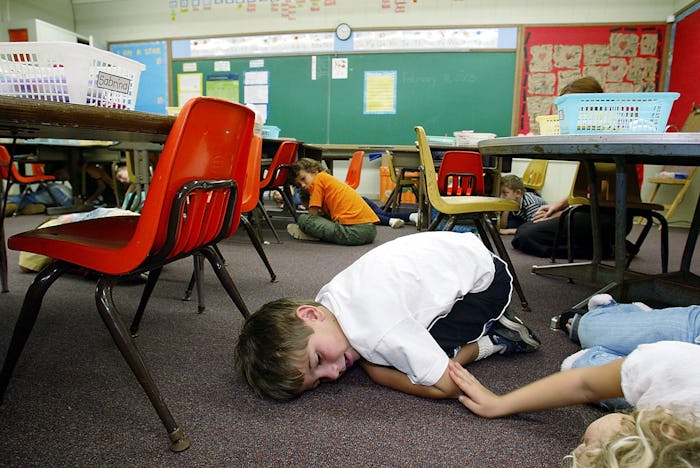Life

Anxiety In Kids May Cause Disruptive Behavior & It’s News All Parents Need To Hear
Wouldn't it be nice if we could all wear t-shirts that explained our motivation to the outside world? So that when, say, we lash out at one of our kids for something trivial, they could glance at our t-shirt and see, "Exhausted and irrational, only had three hours of sleep", and they might understand. Ditto our bosses, our partners, etc. Unfortunately, many of us don't fully understand our own feelings and don't really know why we act (and react) the way we do. Life is not as simple as all that. For instance, an anxious kid might get disruptive and seem angry and aggressive, but is that how they are really feeling?
According to a new study by the Child Mind Institute, social anxiety can look like something else. Something darker and more dangerous. Take the story of 10-year-old James, a boy who has an altercation with one of his schoolmates that escalates into a 911 call and a permanent ban from the school cafeteria. As Dr. Jerry Bubrick, director of the Anxiety & Mood Disorders Center at the Child Mind Institute, discovered, James wasn't acting out because of anger; “It turns out, after an evaluation, that he is off the charts for social anxiety.”
Dr. Bubrick reports that James, "can’t tolerate any—even constructive—criticism. He just will shut down altogether. James is terrified of being embarrassed, so when a boy says something that makes him uncomfortable, he has no skills to deal with it, and he freaks out. Flight or fight.”
One of the great difficulties in recognizing anxiety, especially in younger children, is that it can easily manifest itself into a host of other behaviors. As Dr. Laura Prager, director of the Child Psychiatry Emergency Service at Massachusetts General Hospital, points out: “It can look like a lot of things. Particularly with kids who may not have words to express their feelings, or because no one is listening to them, they might manifest their anxiety with behavioral dysregulation.”
Dr. Prager explains that some of the more common behaviors associated with anxiety, like difficulty sleeping on their own, are simpler to diagnose for parents, it's this disruptive behavior in children that can be a real sign of anxiety.
When the chief complaint is temper tantrums, or disruption in school, or throwing themselves on the floor while shopping at the mall, it’s hard to know what it means. But it’s not uncommon, when kids like that come in to the ER, for the diagnosis to end up being a pretty profound anxiety disorder.
If you think your little one is suffering from severe anxiety, a proper assessment would be a great idea. In the meantime, KidsHealth.org offers these strategies to help your anxious little one.
- Recognize that the anxiety is real
- Never belittle the anxiety as a way of forcing your child to overcome it
- Try not to cater to the anxiety
- Teach kids how to "rate" anxiety
- Discuss some useful coping strategies
It's a whole lot simpler to see a child throwing a tantrum and think they're just behaving badly. But, just as we act out for a million different reasons in our day, so too it is with our children. We should delve a little deeper under the surface to see what is actually going on with them. Because they are so worth the effort.